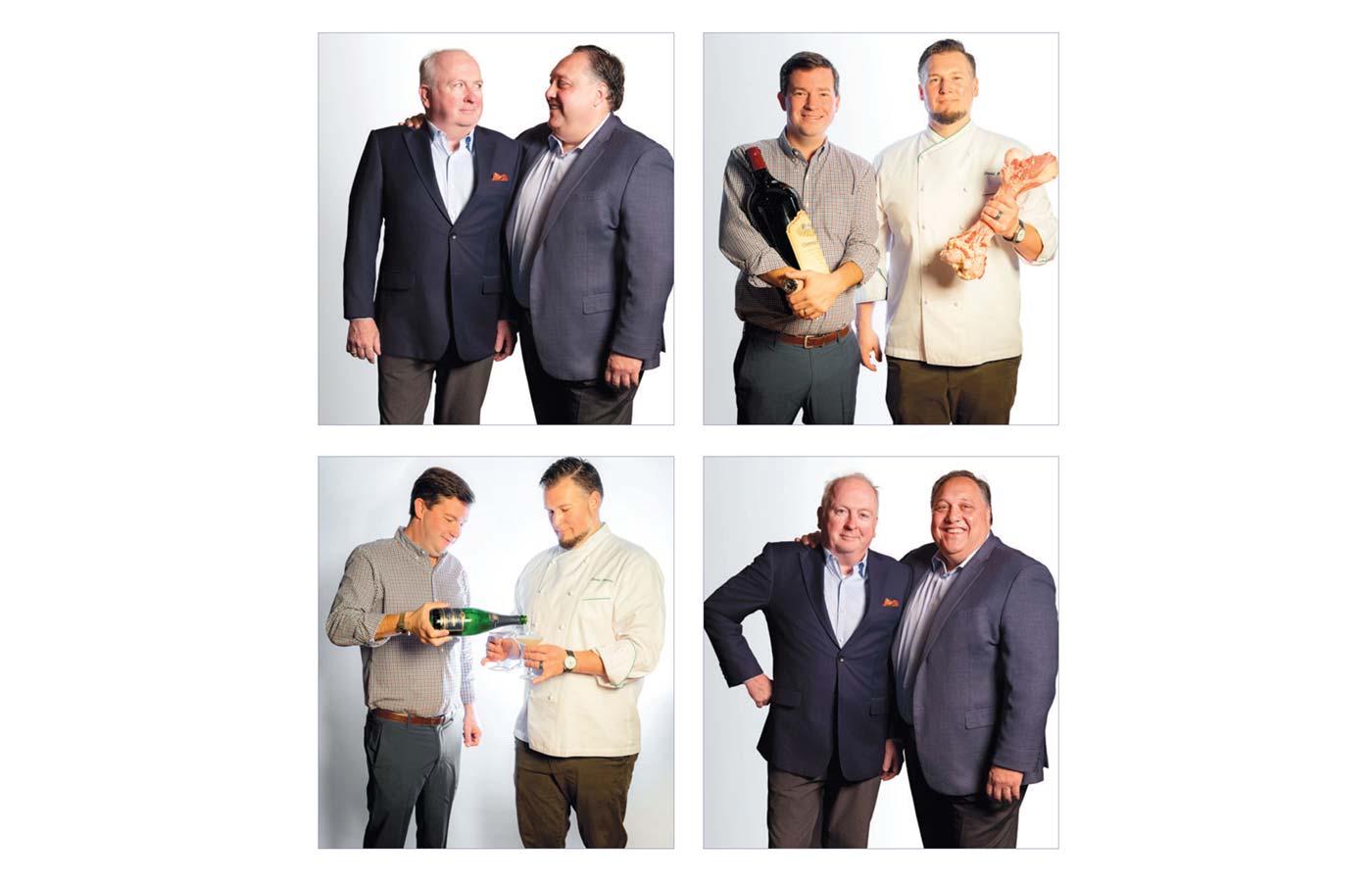The Restaurant Life
The pandemic—as well as pandemic fatigue—has wrought unheralded change within the restaurant world and will continue to impact the industry for years to come.
Edible Jersey talked recently with two sets of restaurant owners at different ends of the longevity spectrum to learn how they have adjusted to the shifting terrain. The first are veterans celebrating the 30th anniversary of their business; the second are new entrepreneurs who opened their restaurant less than six months ago.
FRANCIS SCHOTT & MARK PASCAL
Co-Owners, Stage Left Steak
Francis Schott and Mark Pascal’s foray into the culinary world dates back to their days sharing bartending gigs while attending Rutgers University. Other restaurant jobs followed graduation until the two opened Stage Left : An American Café, in New Brunswick, in May 1992. Along the way they added an upstairs Italian restaurant, Catherine Lombardi, and a wine shop. Five years ago, the café morphed into Stage Left Steak. The college friends with a vision to open their own restaurant likely did not see their dream becoming what it is today: a community mainstay and a Garden State classic. We sat with co-owner Francis Schott for this conversation.
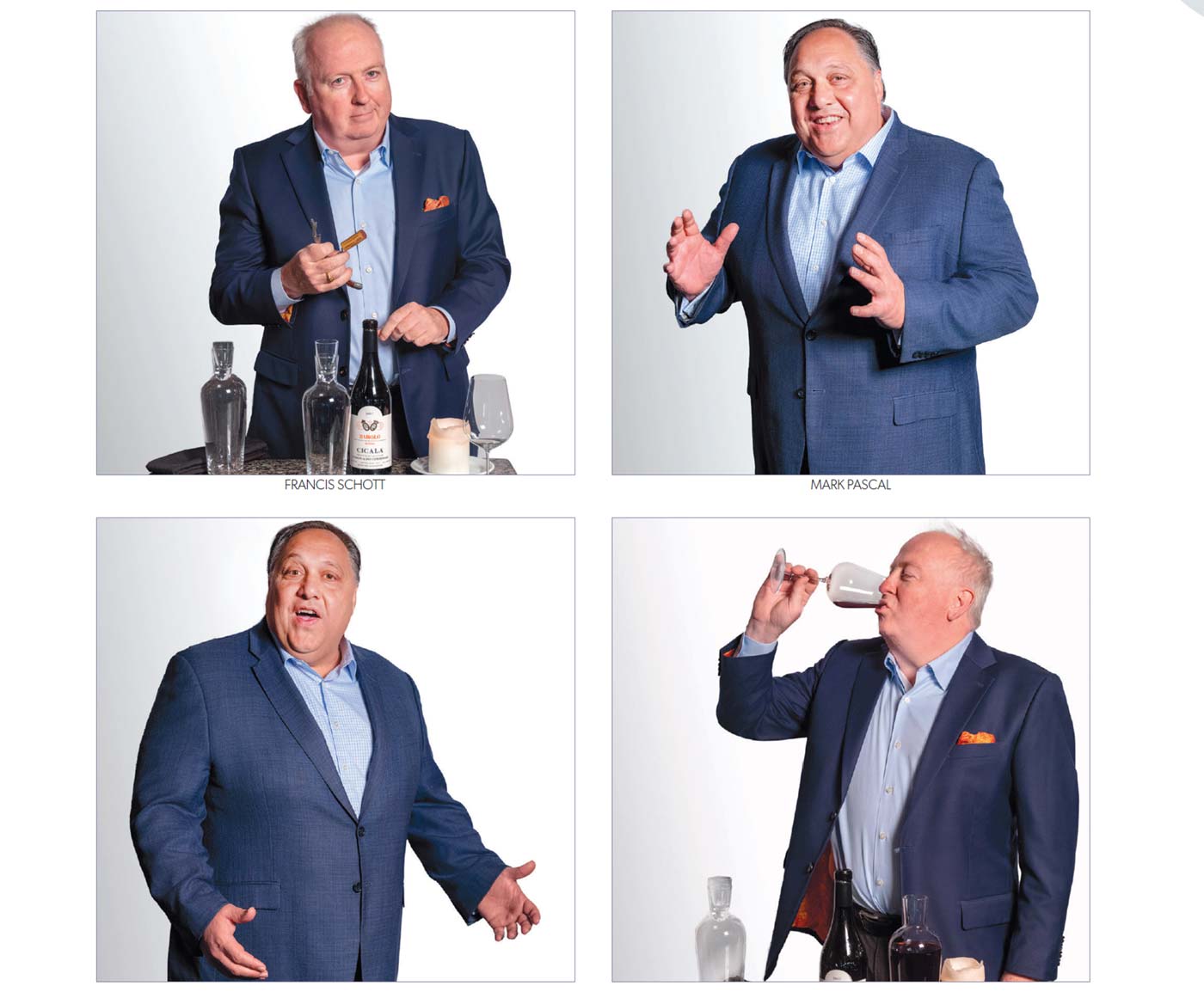
EDIBLE JERSEY: Thirty years in business. Any secrets to success or advice?
FRANCIS SCOTT: Mark and I did a TEDx talk and said, “I am not sure we have any restaurant advice to give other than to copy our experience and open at the dawn of the largest economic expansion in the country’s history. Don’t open at the beginning of an economic constriction.”
When we opened in 1992, the mistakes made by two 27-yearold first-time restaurant owners were absorbed by the expanding market in 1993, ’94, ’5, ’6, ’7. When we opened Catherine Lombardi shortly ahead of the economic downturn in 2008, our accrued knowledge and experience by that time helped us weather that [downturn].
EJ: You have had a commitment to “local” since opening, well before it became a marketing buzzword for restaurants.
FS: We were always advocates of great fish and produce grown in-state. We always made the business about sourcing from local farms, starting back in 1992, ’93. We got confused looks back then but have always been committed to using seasonal ingredients from area producers.
On the wine side, we place an emphasis on estate wines from family farms rather than wineries run by a board of directors. For one of our 30th anniversary celebrations, we did a tasting and dinner with Harmon Skurnik, along with his brother Michael, founders of one of the premier wine and spirits importer/wholesalers, Skurnik Wines and Spirits.
We first started working together when Skurnik was just three employees. You can say we were at the beginning of the modern era of food and wine.
EJ: How did Stage Left come through the pandemic?
FS: You learn over the years that life changes, not necessarily better or worse, so you have to adapt to change. This was a different and difficult environment. We wished it hadn’t happened, but our customers are very loyal and they stuck by us. We have been fortunate to become a big part of the New Brunswick community, which has only gotten larger, stronger, and more personal. This downtown, too, serves as a destination for dozens of our neighboring towns.
EJ: Speaking of adapting and changing, tell me how one such change helped the business in the pandemic, Stage Left Wine.
FS: We had a [wine] retail shop back 20 years ago that we closed a few years after opening. We were probably too ahead of our time, but New Brunswick has changed a lot since then. Two years before the pandemic, we converted a dining room space to a retail store. It was set up for both online and walk-in sales and it became the place where customers could pick up not just wine orders during the shutdown but to-go orders, too.
EJ: You and Mark were college friends at Rutgers, and your previous hospitality industry experience was bartending together at The Frog and The Peach. I have a close friend in the restaurant business in DC whose father was one of the original owners and name behind the legendary Midtown New York Irish pub, P.J. Moran. I see some of that tradition in you. You have that bartender’s sensibility but also a combination of genial host with the clear message that the restaurant is your house. “All are welcome here” meets “be good or be gone.”
FS: Thank you for saying that! Mark and I have always considered ourselves old-school bartenders, tavern keepers, publicans. It is our house and a civilized place. A locus of community, and our community includes not just our customers, but our farmers, winemakers, distillers, growers, vendors, and our staff and management team. Our customers are the most important part of that, of course.
How our staff is treated is also really important. When people take their frustrations out on restaurant staff, that’s not cool. People deserve an environment of mutual respect, or at least decorum, and we make sure that is observed.
EJ: Speaking of staffing, how have the issues plaguing the industry impacted Stage Left?
FS: We have always been cognizant of the life/work balance, long before now. The industry has always had a transient workforce and, at the same time, we always look for career types and make it happen for them if we can. Much of our management team has been with us for a decade or longer, and they pretty much all started as bussers here.
EJ: Has anything good come from the pandemic?
FS: I think the industry as a whole has had to raise kitchen pay and lower the disparity between front and back of the house. That’s positive.
EJ: What does the future hold?
FS: I don’t make 100 percent predictions, but I am seeing a return of elegance and quality in dining. Costs and prices have increased, and they likely won’t go down. Hours and offerings may have to be shortened so restaurants need to focus on being great when they are open. The focus needs to be on being great. I think that’s what customers are looking for now.
Customers remember what it was like to not have restaurants for a year and seem to have a greater appreciation of service. We appreciate them more, too. It’s good to be on the other side.
STAGE LEFT STEAK
5 Livingston Ave., New Brunswick
732.828.4444
stageleft.com
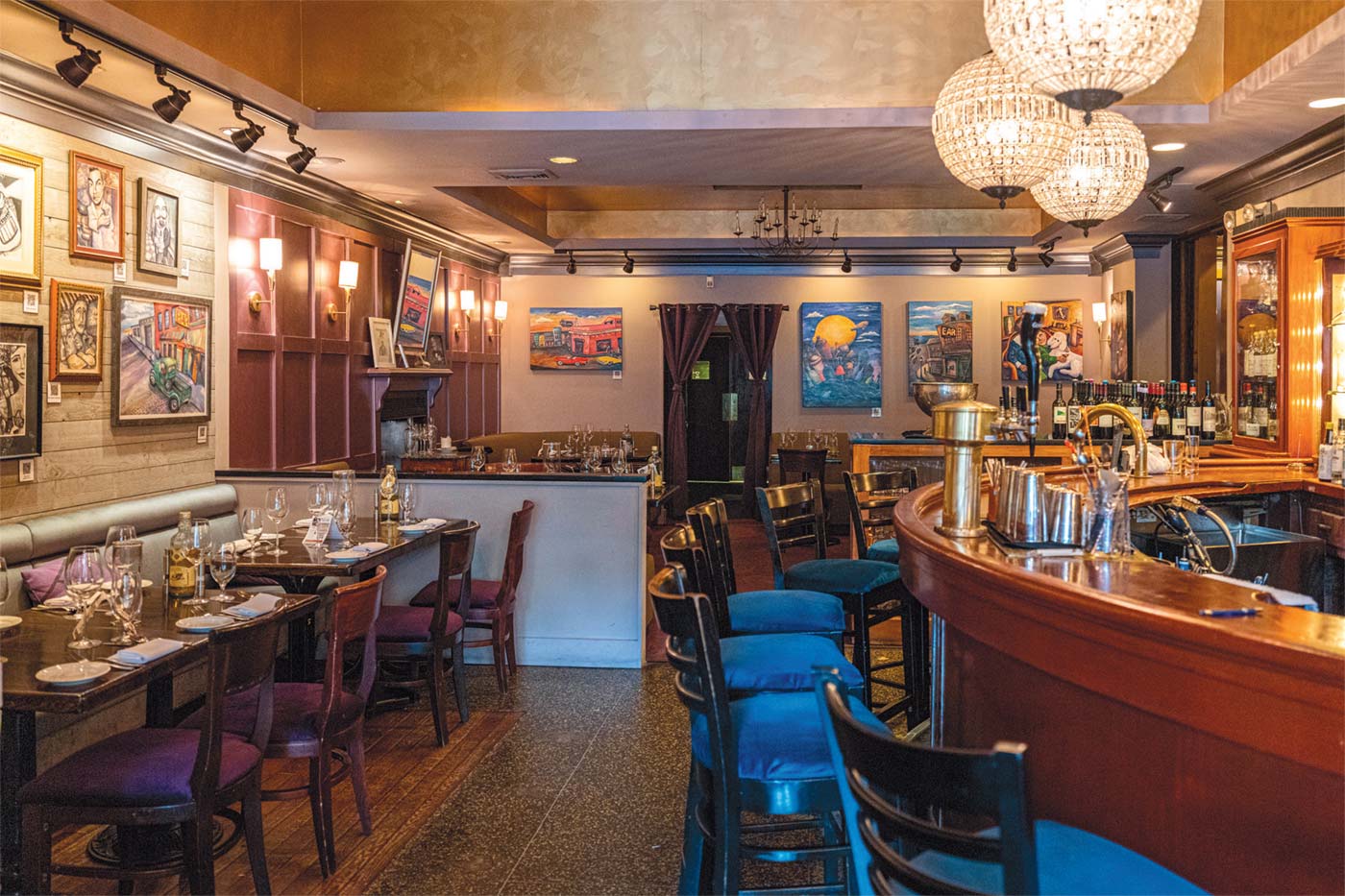
Stage Left Steak
JES TAYLOR & DANIEL BRUNINA
Co-Owners, Sergeantsville Inn
Following successful careers at some of the most notable restaurants in the country, Sergeantsville Inn’s owners Jes Taylor (general manager) and Daniel Brunina (executive chef) initially crossed paths at Roots Steakhouse in Morristown, where the two recognized they shared a vision that sprang from their experiences as well as the impact the pandemic had on them. They found a home with their purchase of the historic Sergeantsville Inn this past spring. Their restaurant opened on July 19.
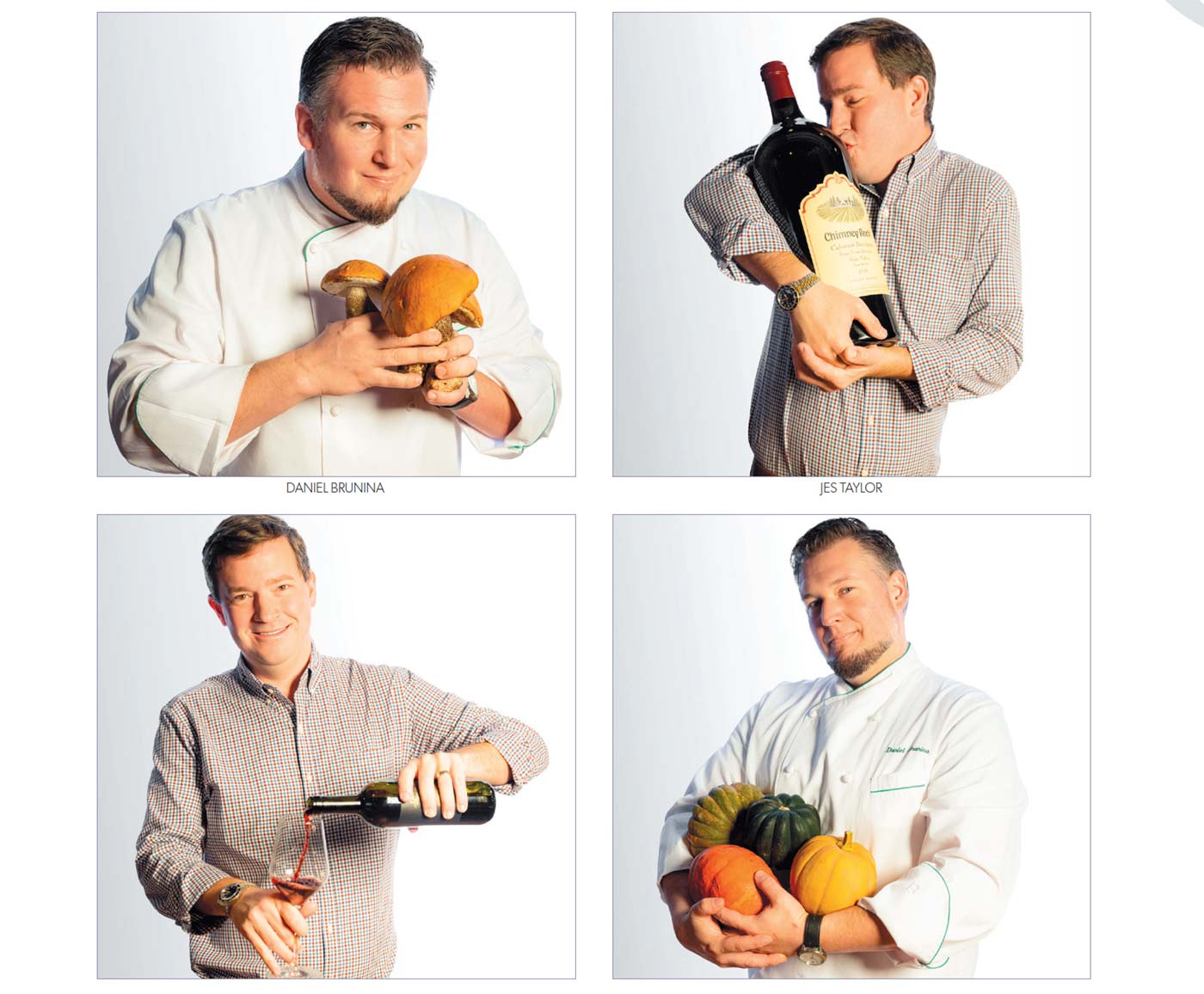
EDIBLE JERSEY: Just a few months in business! But you both have a number of years in the restaurant business here in New Jersey and elsewhere, and this launch did not happen overnight.
DANIEL BRUNINA: Jes and I met the first day I was working at Harvest Restaurant Group, and we realized we had similar life and career paths and we just kind of clicked. One Saturday night, after 400 covers, we looked at each other and said we can do this for ourselves, creating a stand-alone restaurant in our vision, away from a larger corporate structure, with a focus on balancing work and life.
JES TAYLOR: I also worked with DINEX, Daniel Boulud’s restaurant group, in New York. Those environments [DINEX and Harvest] created an invaluable foundation in how to run and administer a business. Once we decided to make a go of it together, we quietly put out feelers and looked around for about a year when this amazing space became available. It was love at first sight for Dan and me—the history, character, and location of the restaurant.
Not having the bureaucracy of a larger group has allowed us to be more flexible and creative, take initiatives and move quickly on them. It has been fun and liberating to apply our prior experiences to this new project of ours.
EJ: You made a significant commitment to local sourcing, but it goes back to the beginning. Dan, you are a Virginia native and what was available to you there was an embarrassment of riches.
DB: I worked in some lauded restaurants (the Inn at Little Washington being one) and was trained to play with the seasons as much as possible and integrate nature into food and it was easy to do there. You don’t realize how special such access is until you have worked in other parts of the country where it is not like that.
When I moved here, I was a little nervous I was going to be living in some “Sopranos”-type situation. But moving into Hunterdon County, I quickly realized I was living in the breadbasket of New Jersey and saw lots of amazing producers and artisans. I’d walk around the Union Square Farmers Market and saw the vendors were either from the Hudson Valley or western Jersey. I can get almost every ingredient I need within 20 miles of here.
I not only am fortunate as a chef to know I can get so much locally but I have also developed strong personal relationships with many of [our producers], too, which only benefits our customers. The concept of “terroir” drives deep in our hearts. We want to show people what Jersey tastes like.
EJ: OK, what does Jersey taste like?
DB: Pick the season! It tastes incredible and nutrient dense.
JT: It’s a cornucopia of seasonal variety that we believe will keep our guests coming in over and over because we aren’t giving them the same food 365 days a year.
EJ: Staffing has been a hot button during the pandemic, but it is staffing that played a big role in developing your new business. How so? What is your approach there?
DB: Who we surrounded ourselves with was critical to us. We wanted to surround ourselves with incredibly talented people who bring their unique visions to the table too. Staffing was a big reason we started the company. I have been in the restaurant business long enough—and Jes has a deep resume too—where we have seen how some places treated staff better than others. We said, “Let’s create a company that makes employees’ lives the best we can possibly make them. Pay them well, take good care of them. Create an environment where people want to come work here. Focus on education and install processes a lot of restaurants are not using either in the front of the house or in the kitchen.”
For example, we get in a whole pig and half a side of beef every two weeks. Our kitchen staff is learning whole butchery, not [just] how to open up a Cryovac with a pre-portioned piece of meat. There are a lot of different measures to success—we value education, and we want our measuring stick to be turning out people who understand food.
EJ: Has anything good come from the pandemic?
JT: If it wasn’t for Covid we wouldn’t have met. I know it was a bit more of a tortured path for Dan, but I am glad we ended up meeting. Our experiences during this period informed a lot of our approach to how we wanted to handle staff health and wellness and work-life balance. We had time to stop and see that 70+ hour work weeks are not sustainable to running a business and having a family and life. That it takes courage to not be open seven days a week.
DB: My two weeks off at the beginning of all this turned into eight months, and it gave me a lot of time to reflect, time to be a dad and build the relationship with my daughter, time to come to understand what lifestyle I wanted. [The pandemic] gave me the gift of time. I thought about what I wanted to be doing and considered other careers, but realized I love doing this. It is my knowledge base and I needed to keep sharing it. The time off gave me the clarity to want to do a project like the one we are doing here at the Sergeantsville Inn.
EJ: What does the future hold for the Sergeantsville Inn?
DB: We’re going to try to do this as long as possible. We think it’s trending in the right direction. It’s been so rewarding to take a project from what it was, what it is transforming into, and what our plans are for the future. If we reconvene six months from now, we are likely going to have a totally different conversation but with the same intentions.
JT: Ultimately, we want to keep creating positive customer experiences that we hope people will want to continue to come back for and replicate.
SERGEANTSVILLE INN
601 Rosemont Ringoes Rd., Sergeantsville
609.397.3700
sergeantsvilleinn.com
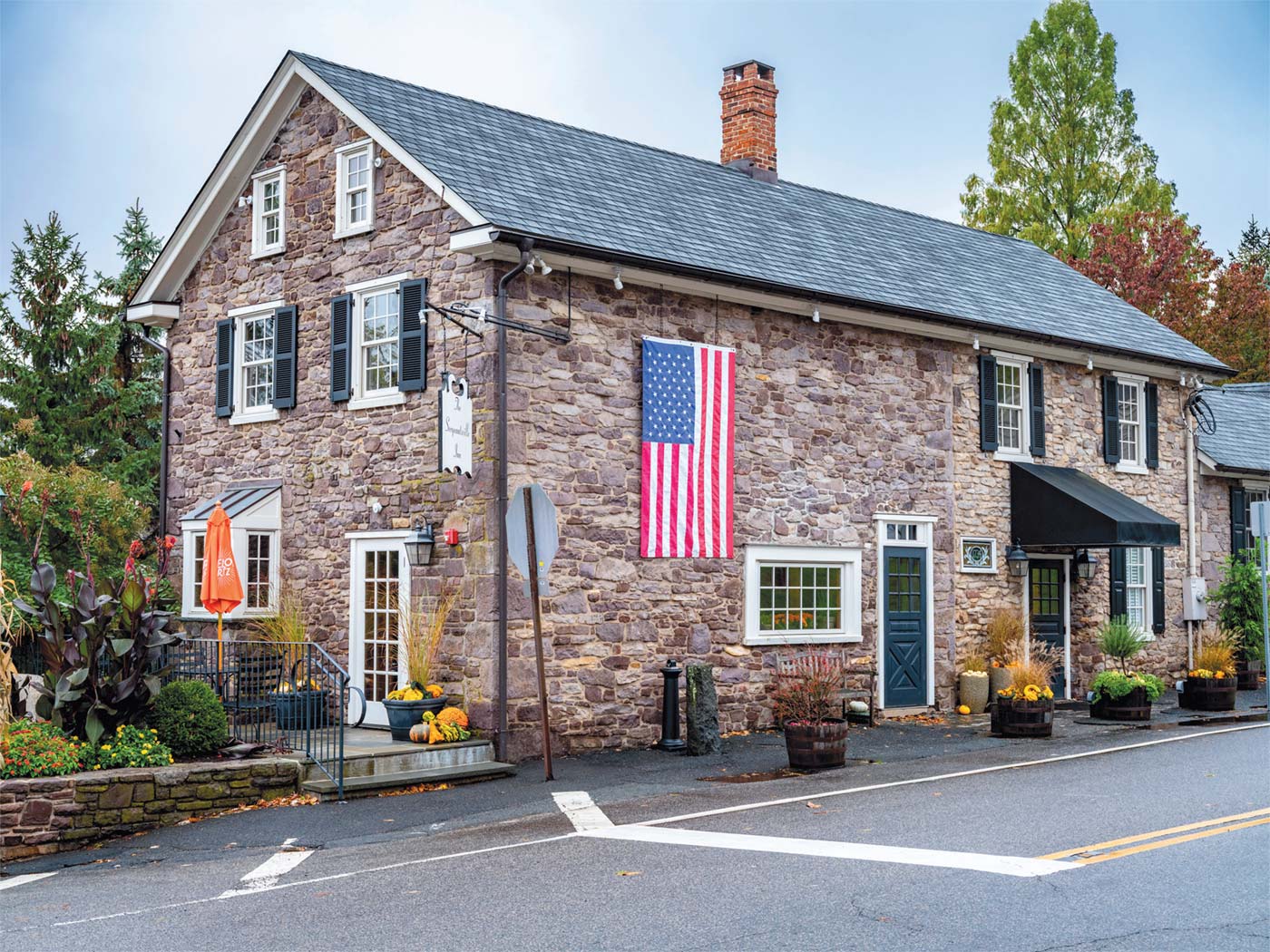
Sergeantsville Inn


